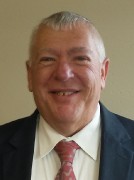About Funeral Alternatives
Funeral Alternatives is a locally-owned and operated family business. We have built our business over the years by offering "sensible alternatives" for the value-conscious consumer. Our simplified approach offers greater flexibility and cost hundreds or even thousands of dollars less than you might find elsewhere.
We are available 24 hours a day, 7 days a week with office hours Monday Through Friday from 8:30AM to PM to answer your questions, handle your funeral prearrangements, or to finalize funeral arrangements. Our experienced and caring funeral directors are ready to guide you through the process.

Chuck Kincer
Owner & Funeral Director

Steve Nadeau
Funeral Director / Manager

Brian Paradis
Funeral Director

Brie Melanson
Funeral Director

Aimee Thiboutot
Funeral Practitioner Trainee

Dennis Lemieux
Funeral Attendant
